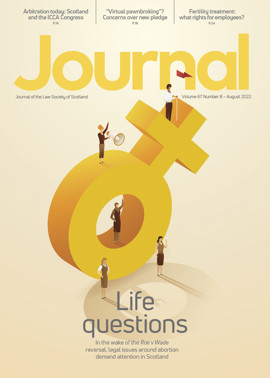Pensions: A neverending story – fraud update
In the neverending battle against pension fraud, recent survey results identify increasing fraud. According to research by Canada Life (PensionSurvey, 8 June 2022), 22% of respondents (39% in the age group 18-34 years) have been approached by phone, text or email offering free pension advice in the last three months.
Actions against alleged fraudsters are necessarily “rear view mirror”, but imprisonment and penalties, maintaining powers to refuse suspicious pension transfer requests, raising awareness, authorities delivering clear strong messages, and refining input from the Pension Wise service from MoneyHelper, can only assist in trying to reduce the success of pension fraudsters and protect pension savers.
Page v FCA
Page v Financial Conduct Authority [2022] UKUT 00124 (TCC) involved three businesses (including independent financial advisers) carrying out different parts of the pension transfer advice process. The Upper Tribunal ruled that the design of the pensions review and the advice process resulted in recommendation of only specific high risk products to targeted pension savers. Through the review process, pension savers were “guided” to a particular advice outcome.
The process delivered a semi-automated recommendation to switch their pension into a self invested pension plan (“SIPP”) with the underlying investment being a product offered by one of the businesses. Failings included the due diligence process, a non-compliant fact find process, leading questions at the assessment stage, no explanation of risks, no reference to the investments being specialist investments, and insufficient prominence to flagging material risks, with only “obscure” relevant warnings. There were also material conflicts of interest and these were not managed.
Herrington J found it to be a seriously flawed business model with abrogation of clear responsibility to make sure business was carried on in a compliant fashion. Financial penalties were imposed and the FCA has made orders prohibiting five individuals involved in the businesses from performing any function in relation to any regulated activity carried on by an authorised person, exempt person or exempt professional firm.
Transfer Regulations
Trustees and managers have been asking to have powers to refuse to make suspicious transfers. This power was included in the Occupational and Personal Pension Schemes (Conditions for Transfers) Regulations 2021 (SI 2021/1237) (the “Transfer Regulations”), which came into force in November 2021.
So how have the Transfer Regulations been working in practice?
Concerns have been expressed that “potentially no-risk transfers relating to overseas investments” are being caught as amber flags under the Transfer Regulations, leading to delays to legitimate transfers. When an amber flag is raised a member must prove that they have received guidance from Pension Wise before a pension transfer can be authorised. Given the sheer scale of the risks posed to pension savers, unsurprisingly the Transfer Regulations were broadly worded and, also unsurprisingly, trustees, managers and administrators carry out careful due diligence on pension transfer requests and remain cautious when a request raises a flag.
There have been calls for a more specific definition of overseas investments, citing the stronger encouragement to pension savers to take advantage of information sessions with Pension Wise. Such a “nudge” no doubt will stop some scams, but is unlikely to move the dial.
Trustees and managers remain concerned, as overseas investments have been a popular scammers’ tactic. Well before the Transfer Regulations and the power to refuse, many schemes had additional checks and steps to try to protect members even though there was no statutory right to refuse.
The DWP and The Pensions Regulator (“TPR”) issued a joint statement on 5 July 2022 acknowledging that there are “concerns about how the Transfer Regulations apply to overseas investments or where small-scale incentives feature in the transfer”. TPR has updated its guidance. The DWP is now considering whether the Transfer Regulations should be amended. Any amendments which could reduce powers to protect pension savers should be limited and specific, as any dilution of powers to refuse to pay transfers without at least mandatory guidance for pension savers would be concerning and increase risk.
TPR continues to work to protect pension savers, including with other agencies. For example, a joint Pension Scam Guide for the pensions industry from TPR, the FCA and Action Fraud was issued in June 2022.
Pension savers who fall prey to scammers often lose their pension savings and suffer tax and tax penalties. However, in June 2022, contrary to the usual outcome, just such a saver succeeded at a First-tier Tribunal against HM Revenue & Customs (The Times, 17 June 2022). HMRC is reviewing the decision.
So, a neverending story but one with heroes as well as villains.
Regulars
Perspectives
Features
Briefings
- Criminal court: Long road against addiction
- Family: CGT reforms in the pipeline
- Employment: Long COVID as a disability
- Human rights: civil rights not engaged by legal aid bid
- Pensions: A neverending story – fraud update
- Scottish Solicitors' Discipline Tribunal: August 2022
- Property: The RoS arrear: any light in the tunnel?
- In-house: As the workplace evolves






